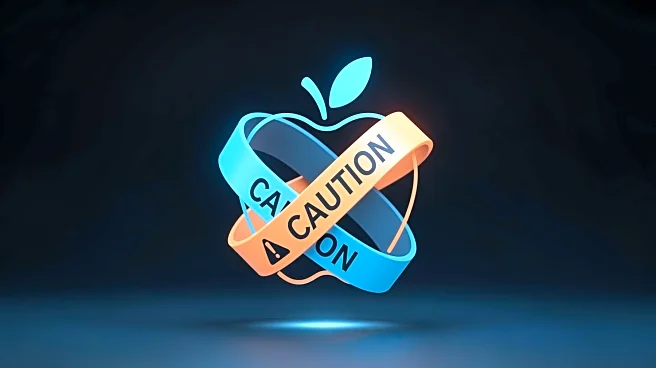What's Happening?
Stephen Colbert has voiced strong support for public media organizations facing significant funding losses due to federal budget cuts. At a gala hosted by New York Public Radio, Colbert emphasized the
critical role of public media in providing local news and emergency alerts, especially in remote areas like Alaska. The Trump administration's decision to slash over $1.1 billion from public broadcasting has forced organizations to seek alternative funding sources. Colbert, along with his wife Evelyn McGee Colbert, was honored for their advocacy for free speech and public media. The gala raised $1.7 million to help bridge the funding gap. Public media is seen as a vital source of unbiased news, especially as trust in traditional media declines.
Why It's Important?
The reduction in federal funding for public media has significant implications for communities across the United States, particularly those in remote areas with limited access to other forms of communication. Public media often serves as the sole provider of local news and emergency information, making it essential for community safety and awareness. The funding cuts could lead to the closure of stations, impacting the availability of critical information. As public trust in media wanes, public media is increasingly viewed as a reliable source of factual news. The shift towards private funding and reinvention of revenue models highlights the need for sustainable support to maintain these services.
What's Next?
Public media organizations are exploring new revenue streams to compensate for the loss of federal funding. This includes seeking support from institutional funders and philanthropists, as well as monetizing content. The ongoing reinvention of funding models is crucial to ensure the survival of public media. The situation in Alaska, where stations face severe funding shortages, underscores the urgency of finding solutions. The broader media landscape may see increased advocacy for public media as a trusted news source, potentially influencing future policy decisions regarding federal support.
Beyond the Headlines
The funding cuts to public media raise ethical questions about the role of government in supporting independent journalism. The reliance on private donations and alternative funding sources may affect the editorial independence of public media organizations. Additionally, the potential political motivations behind media decisions, such as the cancellation of Colbert's show, highlight concerns about freedom of speech and media bias. The situation calls for a broader discussion on the importance of maintaining unbiased and independent news sources in a democratic society.









